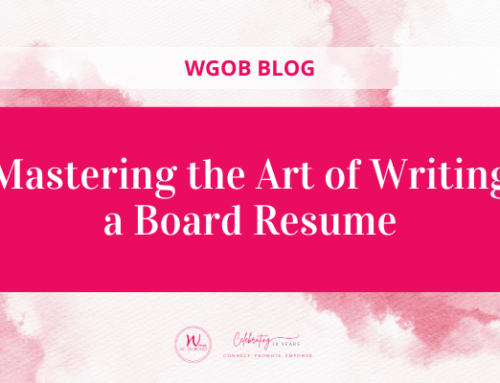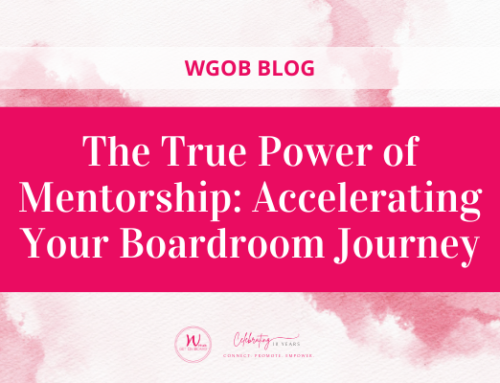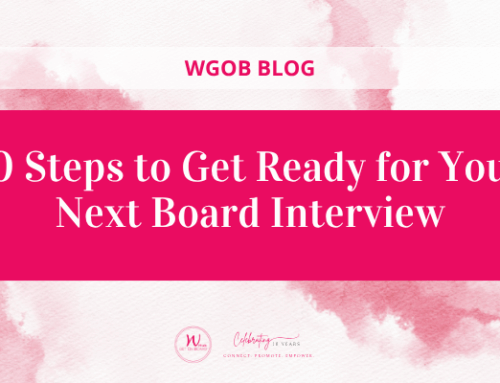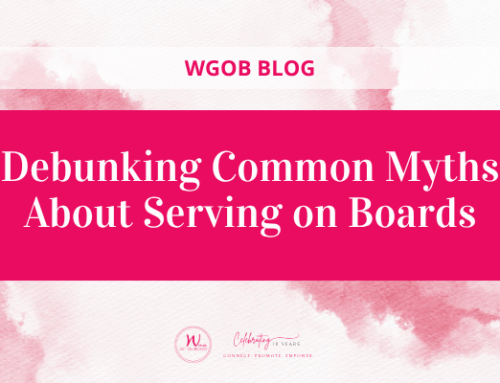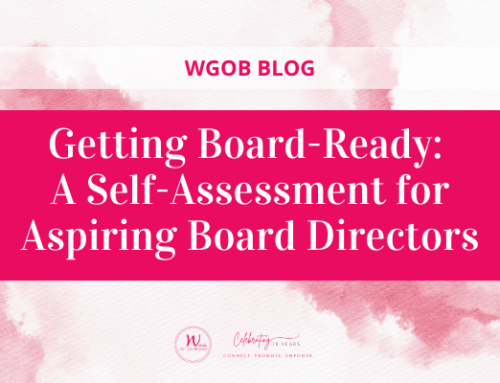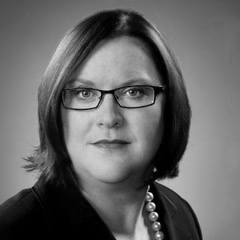
Denise Carpenter, ICD.D, is an executive coach and experienced board director. She is Chair of the Board of Oshawa Hydro Inc. and EnerFORGE, a non-regulated renewable energy company that develops, constructs, and operates clean energy generation across Ontario. She is also Chair of the Board for Canada’s Great Kitchen Party, a social enterprise which provides young Canadians opportunities through sport, music and food, and a Director of Toronto Ronald McDonald House. Denise is also a Member of the Institute of Corporate Directors’ Climate Strategy Advisory Board.
How has COVID-19 impacted your experience of board service?
Directors have really leaned in and brought their whole selves to the table. They tend to be focused on questions like: what’s the situation today and tomorrow? What is in front of us? What is around the corner? What are the risks and the options? Do we have the right information to make directional decisions? As risk factors change, we’re pivoting and making fact-based decisions. I’m really proud of the boards I serve on. Early in the pandemic we made some really tough, fact-based decisions to build resiliency in the organizations we serve.
What is the key to optimizing board performance when faced with the massive uncertainties of a major event like COVID-19?
As a board Chair I tend to approach crises with a calm, collaborative, measured approach, always analyzing the issue and/or crisis. I motivate boards and management teams to achieve fact-based decision making while keeping the future impacts and resulting growth of the business in focus. The more you know about the market and your customers, the more you can anticipate and look around that corner. You may not be able to predict the future but running scenarios will help chart the path forward.
Does a crisis like COVID-19 change your perspective on oversight of environmental, social and governance (ESG) factors?
Today, more than ever, ESG is important to the resilience of organizations. This includes reporting and demonstrating your commitment to shareholders, stakeholders, employees, and the communities you serve. Boards need to develop and review strategies within the context of the full business environment in which they operate. I believe that in order to be a great board it is necessary for each director to lead with conviction and stay committed to good ESG principles.
What role have mentors played in your board success?
We all have biases – conscious and unconscious. I’ve chosen not to let that drive me. I have always focused on the need for a greater diversity of thought and the fact that I’m at the table to contribute at the highest level possible.
The biggest gift I was ever given involved a situation where I was co-leading a major industrial initiative as part of a non-diverse team. One of the very first meetings was with a group of all-male CEOs from around the world. I was in the coffee room, and one of the CEOs said, “Oh, thank you, dear. I’ll have a coffee with . . .” At that stage in my career and in my life, I honestly didn’t think too much about this request. It was what it was – at that time. But another male CEO looked at the gentleman and said, “I’m not sure she is the best person to get your coffee. She’s a pretty expensive member of the leadership team to be doing that.“ The gift of this experience was that it allowed me to put myself in the room and give myself respect and perspective. It put me firmly at the table. My learning is that it’s really about how you conduct yourself in that environment, and how you gain respect for your contributions. That CEO is still a mentor of mine, somebody I admire so much.
How do you find your voice at the board table?
Finding your voice is about developing a respected voice. Become a very good listener and really develop your understanding of the company and the environment in which it operates. Use your intellect and your emotional intelligence. Use your voice in a collaborative manner, and when you know the subject matter. Be confident and respectful of others at the table. Speak your truth!
Where do you see yourself in 5 years?
My vision is simple: I want to continue to help organizations and individuals succeed.
I am so incredibly grateful to be in the World Bank director nominee program. The World Bank invests in companies that are committed to ESG, financial, and third world markets. This fits with my personal and professional purposes.
I admire boards that operate in complicated business environments; ones that are emerging and established leaders in diversity. Diversity of gender, diversity of sexual orientation, diversity of race and most importantly diversity of thought: building a board that is fully representative of the community in which they operate.
What advice do you have for other women on their board journey?
Always be true to yourself, your values and your ethics. Know what stage of life and career you’re at and seek appropriate boards for that stage. If you’re working full time, you likely won’t have the time or the intellectual bandwidth for a large corporate board. Think about whether you can go “all in” at this stage of your career. When you are all in, you get much more out of your board experience than you give.
Secondly, understand – truly understand – why you want to be on a board. To be a great board director, you need clarity of purpose, passion and perspective. Be inquisitive and dedicated enough to understand the business, governance, and geopolitical environment of the organization. That takes a lot of work and dedication. If you come to the board with that level of dedication and curiosity and passion, then you will be a great board member.

